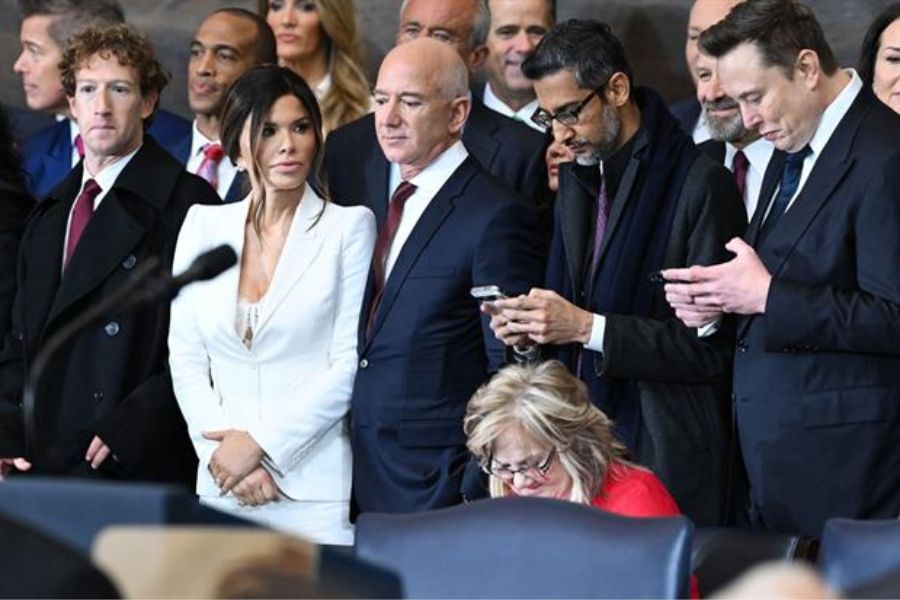Vax in 2021. Goblin Mode in 2022. And now, Rizz in 2023.
These were the three most recent winners of the Oxford University Press’ “words of the year”.
For 20 years now, the Oxford University Press has been picking words that “reflect the ethos, mood, or preoccupations of that particular year and to have lasting potential as a word of cultural significance reflect the ethos, mood, or preoccupations of that particular year and to have lasting potential as a word of cultural significance.”
And they aren’t the only ones – Cambridge, Merriam-Webster, Dictionary.com and a whole host of language experts do the same. The Associated Press put together a list from around the world that included entries from countries including Australia, Haiti, France, Japan, Kenya, South Africa and Taiwan. (India’s word of the year in the AP list was 'Bharat'.)
This constant evolution of language is incredibly fascinating – it doesn’t just tell you how people communicate but how they think and feel. It reflects the prevailing beliefs, values and prejudices of a society or culture, often with long lasting repercussions that far outlast the conditions in which they emerged.
Consider, for example the long-held bias against left-handers in medieval Europe. The word ‘sinister’ is derived from the Latin ‘sinistra’, meaning left. Similarly, French for left is ‘gauche’ – not exactly complimentary. Contrast this with the word for right – ‘droit’ – and you can see ‘adroit’ in there. All three words are regularly and commonly used today, although the prejudice that inspired them is long gone.
Similarly, the high value placed on politeness and good manners in Thai culture could be a reason for the common use of the term “mai chai”, literally meaning “no yes” as opposed to a plain “no”. The high emphasis placed on book learning above holistic development in large parts of the Indian education system is brought alive by the Hindi phrase 'padoge likhoge banoge nawab, kheloge kudoge banoge kharaab' (paraphrasing – if you study your books, you will become successful, if you choose sports / play, you will become ‘bad’).
Even more interesting than these delightful idiosyncrasies and etymologies is understanding the nature and shape of how languages evolve. Historically, one of the most powerful drivers of evolution has been the intermingling between cultures and nations – this is especially true of language. The impact of multiple languages on each-others’ vocabulary, through adoption of words, phrases and concepts is well documented, and is something we live with every day.
As we look to the future, though, it is interesting to consider the kind of factors that’re likely to influence the evolution of language.
The increasing influence of technology
As tech gets more widely and deeply embedded in our lives, it’s likely to influence not just our vocabulary, but also the very structure of language. For the former, think not just of the use of ‘tech’ words, but concepts, including “Back-end”, “Bandwidth” and “Bangalored”, which are part of conversations that don’t necessarily have anything to do with tech. For the latter, the increasing emergence of acronyms (FR, IYKYK, SMH…) reflects the tech world’s long history of and preference for using acronyms.
The growth of tribalism
As our 'tribes' become ever more central to our identities, the need to demonstrate both, belonging to the tribe and being different from the non-tribe becomes more important. In-jokes, specific terms of description, and signature phrases all contribute to tribe or identity-based language evolution. Swifties (hat tip to the Deadheads), 'bohot hard', and 'Ok Boomer', can all be seen as examples of language evolving based on shared passions, lived experiences and/or strongly held opinions.
Shorter life spans/temporary/newer meanings
Remember 'bae'? It was all the rage a few years ago. Not so much anymore. Or the transition of “woke” from being used to describe those aware of social inequalities to being used almost pejoratively to describe seemingly utopian ideas. Or consider the Cambridge Dictionary’s word of the year – hallucinate. This relatively old word has been reinterpreted in the context of probably the most significant tech development in years – the emergence of AI in 2023, specifically for its potential to produce false information. According to the Cambridge Dictionary: “When an artificial intelligence (= a computer system that has some of the qualities that the human brain has, such as the ability to produce language in a way that seems human) hallucinates, it produces false information.”
As the sources and numbers of newer words increase, and their meaning evolves with usage, we are likely to see fewer language evolutions exist for long, at least in their original form.
Different sources of introduction
Traditionally, words / phrases were mainly introduced by linguists, scholars, or experts, top-down, in one sense. Now they’re more likely to introduced bottom-up – originating with everyday users. A vivid example of this is the title of the first chapter in Suketu Mehta’s Maximum City – “Powertoni” – a contraction of Power of Attorney, arrived at by users in a context that differed greatly from the term’s origins. More recently, Delulu, Gucci, Sus, and similar words are originating with younger users, and then disseminating to a wider audience. We’re also increasingly speaking as we text / type as opposed to vice-versa. GOAT, Lol, No cap, are all examples that originated on a keypad, before becoming part of everyday lingo.
These dynamics have clear implications for their impact not just on language, but on society as a whole. One clear positive is that a language that keeps evolving is a language, and by implication a society, that’s alive and thriving. Another is that the broader the sources of influence on a language, the more heterogenous and therefore inclusive it tends to become.
But we risk the emergence of “generational ghettoes”, something we’re more familiar with in the context of tech and social media. As an example, consider “Situationship” – contrast the younger cohorts’ comprehension and comfort with the word and the concept as opposed to that of the older ones. Or, “Old-school” – a term that invokes very different emotions and imagery amongst older cohorts as opposed to younger ones.
We’re also at risk of lowering our ability to grok language from the ever more recent past. Once this process could take centuries – in the not-so-distant future, it could take decades or ever less. The price of progress, eh?
In conclusion, the evolution of language will continue to reflect the beliefs, values and prejudices of their host societies – but the sources, nature, and shape of the evolution will reflect the newer influences, structures and behavior that animate these societies.
(The author is our group chief strategy officer, Quotient Ventures.)




